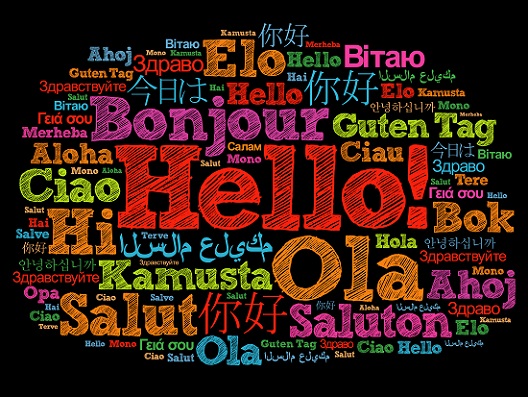Cape Town is a very multicultural city, and as an international student it took me longer to meet South African people than it took me to meet foreigners. Meeting people from all over the world in this amazing city, made me aware of a career I was barely aware of before: translating. As you may imagine, most people who move overseas speak more than one language, which opens a lot of doors of career opportunities for them, one of which is the world of translations.
Mainly as a freelance job, but also strong in all types of industry, translating from one language to another is a skill that requires not only gramatical knowledge but a bigger ability to communicate beyond cultural and literary barriers.
Types of translation
There are different types of translation and each of them requires a different set of skills depending on the context.
- Interpretation: this can be considered the hardest type of translation, because it involves simultaneously translating what someone else is saying and doing it communicating the same meaning. This type of translation can also be used with international guests and to ensure a clear communication between two parties who don’t speak the same language. This type requires an excellent set of oral and aural skills, the ability to think fast in both languages and the ability to eloquently communicate with two people at a time. It is most commonly used in international relations and public events.
- Legal Translation: This is the technical type of translation, it involves all types of documents in a legal context and it requires a specific vocabulary that involves a lot of technical terms specific to a professional field like medicine, engineering or even law. The tricky part of this type of translation is that not many terms can be replaced with different words and therefore a very specific and accurate vocabulary is needed in order for it to be taken seriously.
- Text Translation: This is the most general type of translation and it involves the translation of any type of text, whether digital or printed, small or great in length an it also goes from basic to advanced language, all for the sake of expanding the influence and range of communication of any organisation or individual. It can involve literal translation and also conceptual translation depending on the project you are working on and the audience you want to reach.
Payment
It would be fair to say that freelance translators are mostly underpaid depending on the employer. It is hard for this ability to be properly valued by particular hirers, because they seem to think that languages are not something you study, but simply something you know. On the other hand, a lot of companies and different careers offer a higher payment to those who speak more than one language, specially when it is useful in their business connections.
Currently Freelance translations can be worth from 14$ for an e-mail to 10954$ for a global marketing campaign (prices as stracker.com.au). The price is set depending on the length of the text that is to be translated and it differs depending on the literacy level of the translator which can be advanced or technical (medical, legal, etc.).
Bridging the gap
One of the biggest challenges in translations is reaching the goal of communicating the original meaning to a different audience with a different culture and language. This means that translators need to have enough understanding of what they are reading to actually figure out the best way of putting the same thought into different words. To do so successfully they also require understanding of the culture and context of the audience they are translating for and enough creativity to bridge the gap between both sides. In the case of face to face translation, it is also the interpreter’s job to make sure not only their words but their body language and voice tone communicate the mood the speaker is trying to communicate.
Are you interested in working as a translator? Have you found any other challenges doing so? Let us know!


